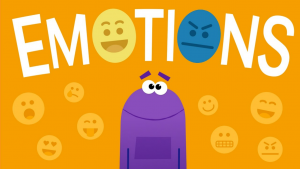We spend our entire childhood and adolescence learning to control and develop appropriate responses to our emotions. We learn from our teachers, from our parents, from society, and from our idols through observation and comparison. Therefore, we might think that most people have some control mechanism when they start trading. However, in practice many of us when we operate find ourselves struggling with our own emotions and losing control. While there are a wide variety of reasons that depend on each trader, these are the most common.
Unresolved Personal Problems
This is one of the main reasons why we always say that trading is a way by which we know ourselves. If there is a past problem that we have not solved or that we are not even aware of because the conditions have not been met for it to emerge, I can guarantee that by operating in the markets that problem will appear. In fact, until you identify him and confront him, the problem will resurface again and again. I’m sure you will. A fairly common situation that indicates the presence of a problem is that of a trader who wins consistently over a period of time and then returns everything to the market in a matter of minutes.
Self Reprobation
Simple but dangerous, self-deprecation puts us into a vicious circle that often begins with the mistake of not preparing properly to operate every day. You don’t prepare, you do something stupid and possibly avoidable, you’re angry at the time of surgery, you get depressed, you lose confidence in your abilities, and you make the mistake of not preparing for the next time. In trading, constant effort and results are everything, not just a single trade or a session. Negative emotions can not only be demoralizing and demoralizing but can also physically and mentally exhaust us.
Immediate Effect
When we are operating and need to perform some kind of action, it is often the strongest emotions that come into action just before executing our entry or exit order. This is perhaps the least easy aspect of overcoming without effective strategies to deal with it. When we suddenly have an emotion of any kind, we are inclined to act on it. The problem is that markets don’t care and, in fact, they move in a way that often aggravates the problem. Emotions distort the reality of what is happening and drive us to act in a way that is often counterproductive.
Based on these reasons we can find in our trade situations like the following (sure to sound to more than one!):
Greed leads us to risk more than we should, leveraging ourselves excessively and ruining the account quickly after a streak of winning operations that has led us to trust too much. It confirms a pattern we have studied but we are afraid to enter the operation and we end up joining the movement too late, buying or selling at the end of the movement.
When a trade goes against us, we decide not to assume the loss and expand or remove the stop loss thinking that the position will return to our favor, thus breaking with our trading plan. The reasons behind all these behaviors are the biases of the mind, some of which we have already seen in other articles on Psychology and Trading. In the case of emotional sabotage, three are the biases that fundamentally affect us:
Bias of Confirmation: This is the tendency to favour, seek, interpret, and recall information that confirms one’s beliefs or hypotheses, giving disproportionately less consideration to possible alternatives. Applied to trading, it would be the tendency to ignore the evidence that our strategies will make us money or the opposite: trust patterns not properly analyzed thinking that we will win when they are actually losers.
Bias of Recent Experience: It is a bias of our mind that comes to keep a sharper and more intense memory of the information we have received more recently, which implies that the context that we apply to our way of thinking at a given moment assumes the sum of memories or previous experiences weighted according to the closeness in time of such experiences or memories. This bias clearly explains why traders rely on excess if they have a winning streak, They hesitate to open a new position if they have had a bad streak or make bad decisions when they are not focused enough and chain several mistakes.
Media Bias: It is the tendency of the media to select the news and information with which it is intended to distort, distort, or lie about a certain fact. Applied to trading, the consequence would be to get carried away by the news published by the media, buying the trendy values, or following the new guru who appeared on television.
How to Overcome Emotional Sabotage?
I’m sure you’re tired of hearing it, but apart from the fact that this is a highly recommended practice to overcome emotional sabotage, it’s absolutely necessary: KEEP A TRADING JOURNAL! In that diary, you will have to tell things as they happened, which requires an important exercise of honesty with ourselves. Don’t blame the market and those who move it. Document what really went wrong and whether we were responsible for it.
The exercise of keeping such a diary honest with ourselves may involve encountering uncomfortable revelations but without a doubt, it is the best (and fastest) way to improve our trading since if we identify and correct the problem we detect (before we merge our account!), this could be a real change in our career as traders.
Additionally, an excellent idea is to create a checklist of our trading plan and make sure you have it in front of you all the time. It’s certainly hard to break the rules if we have them in front of us. By doing this we have another powerful tool to identify the root of the problem that causes emotional sabotage and allows us to correct it in real-time before we go ahead and make more mistakes that ruin our account.
Finally, another important recommendation is to learn to know yourself and how we act as traders. If we tend to make certain mistakes, are prone to be victims of certain biases, are confused by the excess of information, or let fear and greed cloud our judgment, then it will be necessary, to be honest with us and admit how we are, for better or for worse. Surely there will be some traits of our character that we will have to learn to correct if we want to succeed in trading but knowing who we are will allow us to make the most of our capabilities and minimize the impact of our weaknesses, thus minimizing the impact of emotional sabotage on our account.
Conclusion
In trading and in life, many times the key to success is knowing what is not to be done, so if bad habits and mistakes are costing us money, then like many traders you are struggling with emotional sabotage. And as if it were a disease, the sooner we detect emotional sabotage, the sooner it will be treated and we will avoid further damage.
A properly studied and analyzed strategy is our best weapon on the market, so once we have one we must let it work. Use your trading journal to detect emotional sabotage and be honest with yourself. Remember: just because the market does things that defy reason, doesn’t mean we have to do them too!





